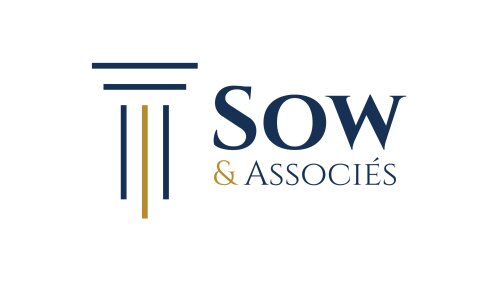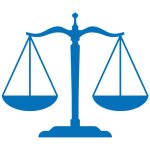Best Disability Lawyers in Dakar
Share your needs with us, get contacted by law firms.
Free. Takes 2 min.
List of the best lawyers in Dakar, Senegal
About Disability Law in Dakar, Senegal
Disability law in Dakar, Senegal aims to protect the rights and well-being of individuals living with disabilities. It encompasses provisions on accessibility, anti-discrimination, education, employment, health, and social services. The city of Dakar, as the nation's capital, follows national laws and regulations, including commitments made under international conventions such as the United Nations Convention on the Rights of Persons with Disabilities. While there has been progress in recognizing the rights of people with disabilities, challenges such as inadequate accessibility, limited public awareness, and insufficient enforcement of existing laws persist. Legal frameworks strive to ensure that people with disabilities can live with dignity and fully participate in society.
Why You May Need a Lawyer
Seeking legal help in the field of disability in Dakar, Senegal, may become necessary in a variety of situations. Common reasons include facing discrimination at work, school, or public places due to a disability, difficulties accessing social benefits or healthcare, or challenges in securing accommodations in housing or transportation. Sometimes, people encounter administrative hurdles when applying for legal recognition of their disability status or when dealing with disputes over rights to education or employment. Lawyers experienced in disability law can help individuals understand their rights, navigate complex bureaucratic processes, represent them in court or negotiations, and support them in advocating for better accessibility or social inclusion.
Local Laws Overview
Senegalese law provides several protections for people with disabilities. The foundational legislation is Law No. 2010-15 of 6 July 2010 on the protection and promotion of the rights of persons with disabilities. This law prohibits discrimination, ensures equal access to education and employment, and promotes accessibility in public and private spaces. There are obligations for employers to make reasonable accommodations at workplaces and for public institutions to provide inclusive services. Senegal is also a party to international treaties related to disability rights, reinforcing its legal obligations. However, the effectiveness of these laws depends on implementation, and there can be disparities between legal provisions and everyday experiences.
Frequently Asked Questions
What legal protections exist for people with disabilities in Dakar, Senegal?
People with disabilities are protected under Law No. 2010-15, which covers anti-discrimination, accessibility, education, employment, and health rights.
How can I obtain official recognition of my disability status?
You typically need to undergo a medical assessment through authorized health facilities. Recognized status is important to access certain rights and social benefits.
What should I do if I experience discrimination because of my disability?
Document the incident, gather any evidence, and consider seeking legal advice. Complaints can be filed with competent authorities or human rights organizations.
Are public buildings and transport accessible to people with disabilities in Dakar?
Accessibility is guaranteed by law, but implementation varies. Some public buildings and means of transportation have accessibility features, yet many still lack adequate adaptations.
Can I demand reasonable accommodations in my workplace or at school?
Yes, both employers and educational institutions are required by law to provide reasonable accommodations to support equal opportunities.
What types of benefits or financial assistance are available to people with disabilities?
Individuals with recognized disabilities may be eligible for social assistance, such as state allowances, free or subsidized health care, access to assistive devices, and priority employment programs.
What rights do children with disabilities have in the education system?
Children with disabilities have the right to inclusive education. Schools are encouraged to adapt their curricula and infrastructure to accommodate special needs.
How can a lawyer assist me with disability-related issues?
A lawyer can help you understand your rights, facilitate access to services, represent you in disputes or appeals, and ensure your interests are protected according to the law.
What recourse is available if a public service refuses to accommodate my disability?
You can file a formal complaint with the service provider, approach regulatory agencies, or seek legal action if necessary. Legal representation can help you navigate this process.
How do I find specialized legal help in Dakar for disability issues?
You can contact local bar associations, legal aid organizations, or disability advocacy groups for assistance in finding a qualified lawyer or legal expert.
Additional Resources
If you need more information or assistance, consider reaching out to the following organizations and government bodies:
- The Ministry of Health and Social Action - Direction de la Protection des Personnes Handicapées (DPPH): Oversees policies and assistance programs for people with disabilities.
- Association Nationale des Personnes Handicapées du Sénégal (ANPHS): A major non-governmental advocacy group for disability rights.
- Senegalese Bar Association (Ordre des Avocats du Sénégal): Can help you find legal professionals experienced in disability law.
- Human Rights Commission of Senegal (Commission Nationale des Droits de l’Homme): Assists with complaints related to human rights violations, including disability issues.
- Local legal aid clinics and social services offices in your neighborhood.
Next Steps
If you or a loved one faces a disability-related legal issue in Dakar, Senegal, begin by gathering all relevant documents and details about your case. Seek out professional advice from lawyers with experience in disability law, either through personal recommendation or by contacting the Senegalese Bar Association or local advocacy groups. Be proactive in documenting incidents and collecting evidence. Should you wish to pursue a formal complaint or legal action, a specialized lawyer can help chart the best path forward, represent you in proceedings, and ensure your rights are protected. Remember that support networks and advocacy organizations are also vital allies in guiding and assisting you throughout the process.
Lawzana helps you find the best lawyers and law firms in Dakar through a curated and pre-screened list of qualified legal professionals. Our platform offers rankings and detailed profiles of attorneys and law firms, allowing you to compare based on practice areas, including Disability, experience, and client feedback.
Each profile includes a description of the firm's areas of practice, client reviews, team members and partners, year of establishment, spoken languages, office locations, contact information, social media presence, and any published articles or resources. Most firms on our platform speak English and are experienced in both local and international legal matters.
Get a quote from top-rated law firms in Dakar, Senegal — quickly, securely, and without unnecessary hassle.
Disclaimer:
The information provided on this page is for general informational purposes only and does not constitute legal advice. While we strive to ensure the accuracy and relevance of the content, legal information may change over time, and interpretations of the law can vary. You should always consult with a qualified legal professional for advice specific to your situation.
We disclaim all liability for actions taken or not taken based on the content of this page. If you believe any information is incorrect or outdated, please contact us, and we will review and update it where appropriate.










